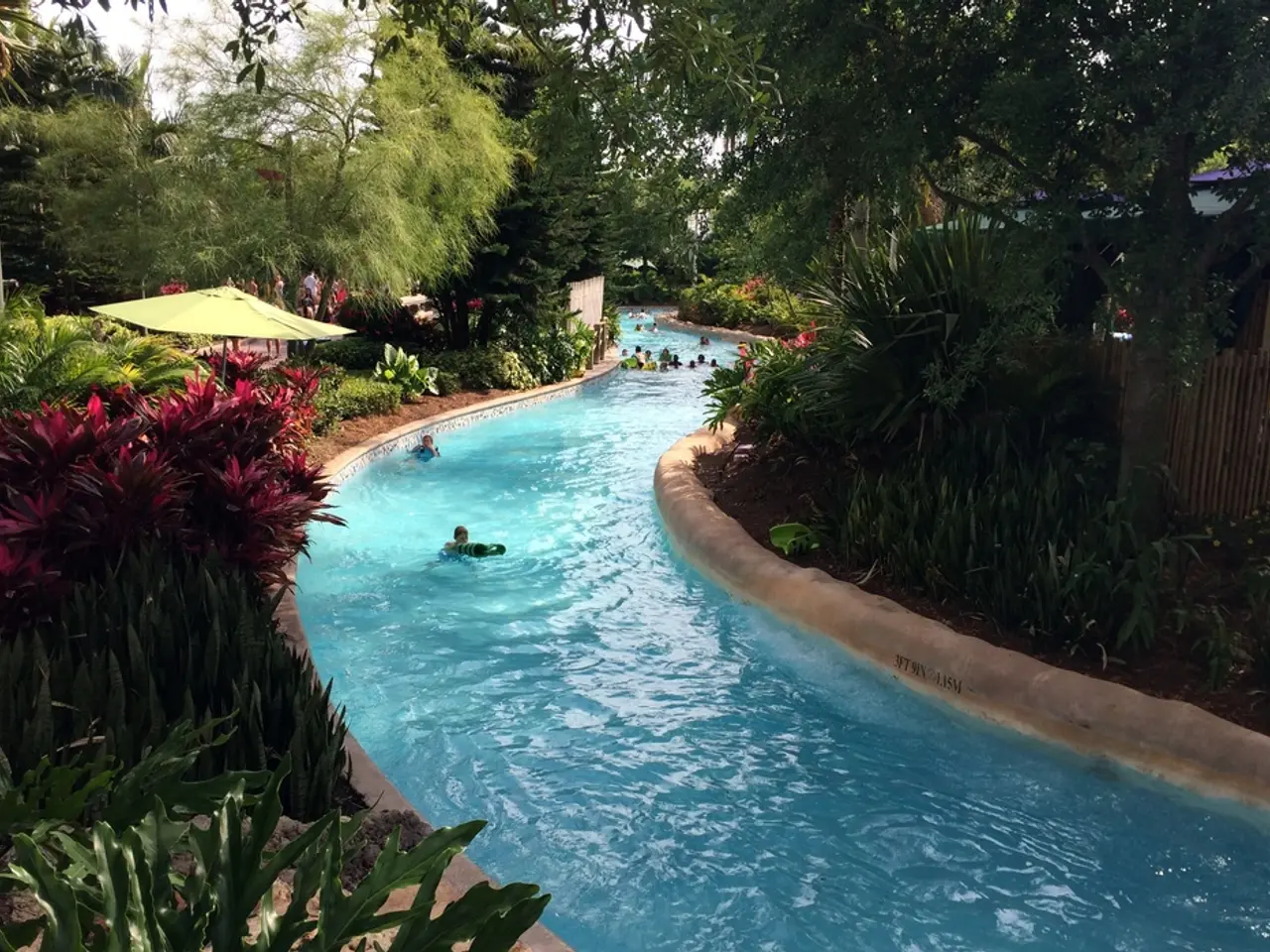Controversy Surrounding the Public Swimming Pools of Berlin
In a move aimed at saving costs, the Berliner Bäder-Betriebe (BBB) announced that they would no longer heat their outdoor pools for the 2025 season, following the withdrawal of €3 million in subsidies for heating costs by the city’s state government [1]. This decision is expected to save BBB between €300,000-€500,000 depending on the weather.
The decision has been met with strong opposition, particularly from older people and children who find the now unheated pools largely unusable due to cold water temperatures [1]. A regular swimmer warned that without heating, swimming can be dangerous as extremities can cool enough to risk hypothermia, and swimming lessons for children have become impossible [1]. This is concerning given reports that a quarter of Berlin's third graders cannot swim [1].
The BBB has implemented several measures to ensure security in the pools, including ID requirements for swimmers 13 and older, online booking, video surveillance, extra security personnel, bag checks via metal scanners, and body cams for guards [1]. However, some people have expressed concerns that these measures, coupled with the increased entry prices, make it difficult for those without internet access or a credit card to buy tickets [1].
Local musician Klaus Blume, in a show of solidarity, posted an original song on his YouTube channel about the unheated outdoor pools in Berlin, expressing his anger about not being able to swim his near-daily 1,200 meters due to cold water temperatures [1]. The song has resonated with many Berliners, reflecting the public's dissatisfaction with the decision.
The Senate has promised to invest €370 million in the pools over the next five years, citing new construction and renovation plans for several pools [1]. However, the BBB's budget for pool security remains at €1.5 million [1]. The BBB did ease mandatory online booking rules to allow walk-up tickets, addressing some concerns about accessibility [1].
The citizens' initiative Freibad für Alle is concerned that the cessation of heating and the implementation of pool occupancy limits will make spontaneous visits to the outdoor pools even more difficult [1]. Local Die Linke rep Ferat Koçak called out the pools as a class issue, stating that people who don't have much money can't go on holiday abroad and need a space to go to in the summer [1].
Sophie Springer, a 44-year-old native Berliner, thinks the swimming pool issue is deeper than temperatures and ticket prices. She compares the current state of Berlin's pools to living in London almost 20 years ago, where austerity culture was already underway and she would sometimes swim alone in 12-degree water [1].
When asked about reversing the heating and pricing changes when city belts are less tight, the Senate ministry simply said the budget would be audited appropriately [1]. The increased prices have raised questions about who can afford to swim in these public spaces. The public debate continues, with many Berliners hoping for a solution that balances financial constraints with the needs and safety of all swimmers.
[1] Source: Berliner Morgenpost, May 23, 2025.
- The debate about Berlin's unheated outdoor pools has extended to fashion-and-beauty and home-and-garden discussions, as some people prefer to spend their leisure time and money on activities that provide comfort.
- The decision to withhold heating for outdoor pools has significantly affected the lifestyle of pet owners, who previously used the pools as a place for their dogs to enjoy a refreshing swim during warm summer days.
- Many locals are finding alternative ways to cool off during the summer, such as travel to nearby beaches or cities with functional outdoor pools, as their preferred local destinations have become unbearably hot and unsuitable for swimming.
- The controversy over the unheated pools has also impacted the relationships between Berlin residents, as some feel alienated from the public spaces due to increased entry prices and new security measures, making it more difficult for them to enjoy their daily food-and-drink and shopping activities in these areas.




